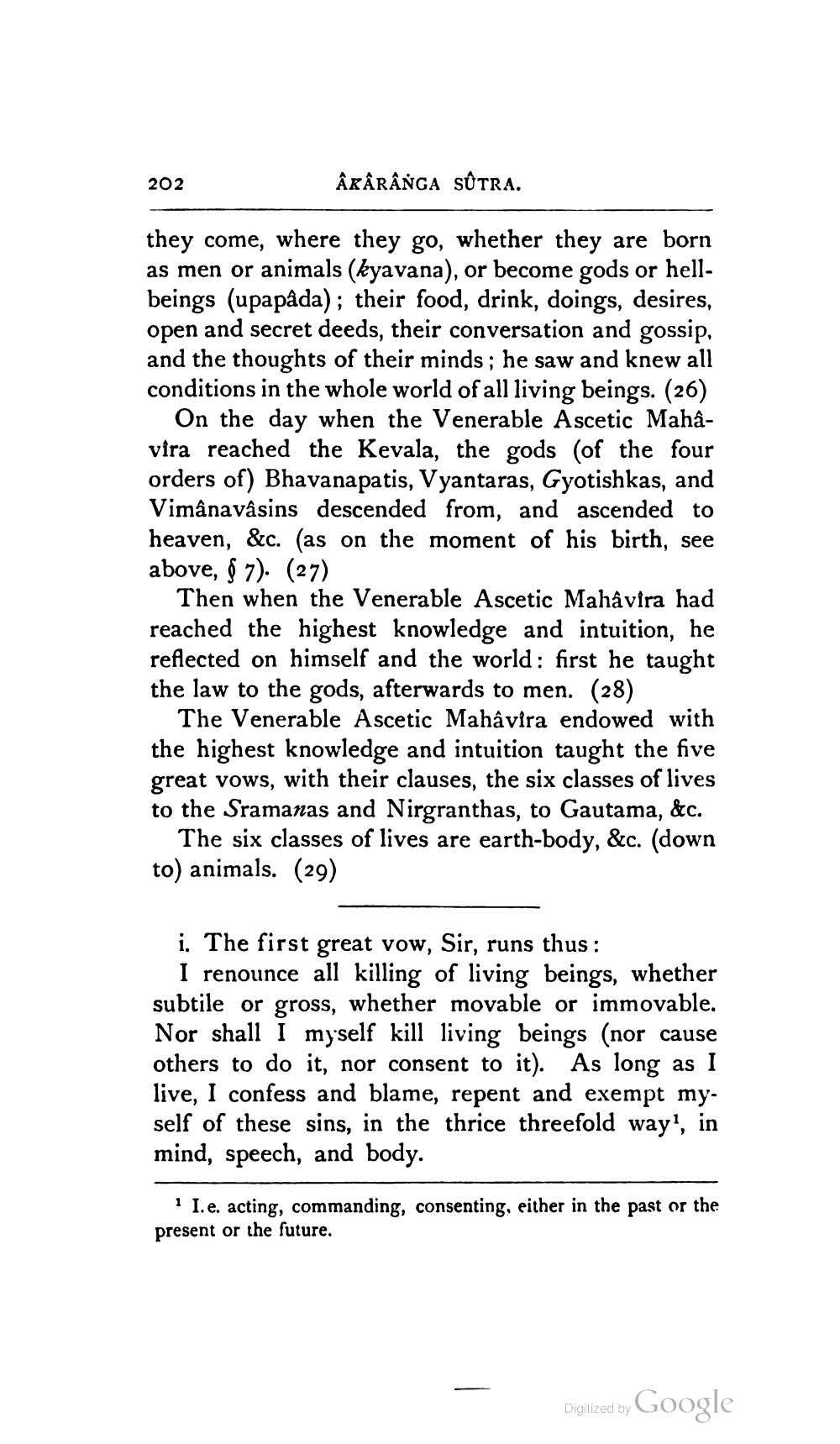________________
202
ÂRÂRÂNGA SÚTRA.
they come, where they go, whether they are born as men or animals (kyavana), or become gods or hellbeings (upapâda); their food, drink, doings, desires, open and secret deeds, their conversation and gossip, and the thoughts of their minds; he saw and knew all conditions in the whole world of all living beings. (26)
On the day when the Venerable Ascetic Mahâvira reached the Kevala, the gods of the four orders of) Bhavanapatis, Vyantaras, Gyotishkas, and Vimânavâsins descended from, and ascended to heaven, &c. (as on the moment of his birth, see above, $ 7). (27)
Then when the Venerable Ascetic Mahavira had reached the highest knowledge and intuition, he reflected on himself and the world: first he taught the law to the gods, afterwards to men. (28)
The Venerable Ascetic Mahâvira endowed with the highest knowledge and intuition taught the five great vows, with their clauses, the six classes of lives to the Sramanas and Nirgranthas, to Gautama, &c.
The six classes of lives are earth-body, &c. (down to) animals. (29)
i. The first great vow, Sir, runs thus:
I renounce all killing of living beings, whether subtile or gross, whether movable or immovable. Nor shall I myself kill living beings (nor cause others to do it, nor consent to it). As long as I live, I confess and blame, repent and exempt myself of these sins, in the thrice threefold way', in mind, speech, and body.
? I.e. acting, commanding, consenting, either in the past or the present or the future.
Digitized by Google




